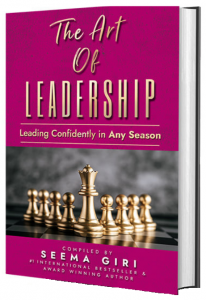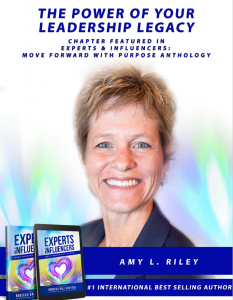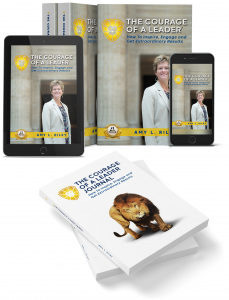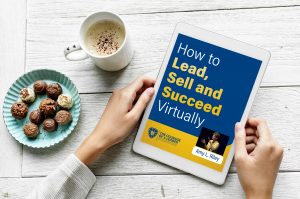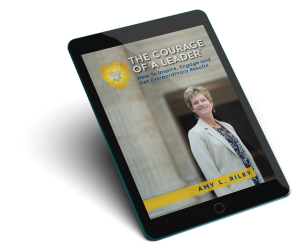How do you strategically and intentionally build your network and scale your impact, AND still have the connections feel genuine and natural?
Damon Burton is genius at this and has been thinking about and working at achieving this balance for long time. He’s an SEO Expert. He understands online algorithms. Yet, he gets that human connection is paramount.
You’ll appreciate his views and examples about how he has – and about how you can – grow your business and impact.
This is not an episode to miss!
About the Guest:
Over a decade ago, Damon Burton, a husband and father of three, beat a billion-dollar company by outranking their website on Google. From then on he realized he was onto something great and went on to build an international search engine marketing company that’s worked with Inc. 5000 and Shark Tank featured businesses alike. Having started his business right before the 2008 recession, Damon is familiar with navigating and growing a business during confusing times, including tripling revenue during the recent pandemic. Since founding his company, SEO National, in 2007, Damon has been featured in publications including Entrepreneur Magazine, Forbes, BuzzFeed and USA Weekly as he helps big and small clients make more in a month than they used to in a year.
Websites: www.damonburton.com & www.seonational.com
SocialMedia:
Twitter – https://twitter.com/EntrepreneurDB
Facebook – www.facebook.com/damon.burton
LinkedIn – www.linkedin.com/in/damonburton/
YouTube – https://www.youtube.com/@damon-burton
Instagram – https://www.instagram.com/entrepreneurdamon/
About the Host:
Amy L. Riley is an internationally renowned speaker, author and consultant. She has over 2 decades of experience developing leaders at all levels. Her clients include Cisco Systems, Deloitte and Barclays.
As a trusted leadership coach and consultant, Amy has worked with hundreds of leaders one-on-one, and thousands more as part of a group, to fully step into their leadership, create amazing teams and achieve extraordinary results.
Amy’s most popular keynote speeches are:
- The Courage of a Leader: The Power of a Leadership Legacy
- The Courage of a Leader: Create a Competitive Advantage with Sustainable, Results-Producing Cross-System Collaboration
- The Courage of a Leader: Accelerate Trust with Your Team, Customers and Community
- The Courage of a Leader: How to Build a Happy and Successful Hybrid Team
Her new book is a #1 international best-seller and is entitled, The Courage of a Leader: How to Inspire, Engage and Get Extraordinary Results.
https://www.linkedin.com/in/amyshoopriley/
Resources mentioned in the podcast
The Inspire Your Team to Greatness assessment (the courage assessment).
How can you inspire our team to be more proactive, take ownership and get more done?
You demonstrate and empower The Courage of a Leader. In my nearly 3 decades of work with leaders, I’ve discovered the 11 things that leaders do – even very well-intentioned leaders do – that kill productivity.
In less than 10 minutes, find out where you’re empowering and inadvertently kills productivity, and get a custom report that will tell you step by step what you need to have your team get more done.
https://courageofaleader.com/inspireyourteam/
Thanks for listening!
Thanks so much for listening to The Courage of a Leader podcast! If you got inspired and/or got valuable leadership techniques you can use from this episode and think that others could benefit from listening, please share using the social media buttons on this page.
Do you have questions or feedback about this episode? Leave a comment in the section below!
Subscribe to the podcast
If you would like to get automatic updates of new The Courage of a Leader podcast episodes, you can subscribe to the podcast on Apple Podcasts. You can also subscribe in your favorite podcast app.
Leave us an Apple Podcasts review
Ratings and reviews from our listeners are extremely valuable to us and greatly appreciated. They help our podcast rank higher on Apple Podcasts, which helps us ignite The Courage of a Leader in more leaders! Please take a minute and leave an honest review on Apple Podcasts.
Teaser for next episode
Stay tuned for our next guest podcast episode – The Integrity Drift – How We Move Away From Our Values and How to Recognize and Respond When We Do – with John Blumberg, National Speaker, Author, and Thought Leader on Integrity.
Transcript
How do you strategically and intentionally build your network and scale your impact and still have the connections feel genuine and natural? Damon Burton, my guest today is genius at this. He has been thinking about and working at achieving this balance for a long time now, he's an SEO expert. He understands online algorithms, yet he gets that human connection is paramount. You'll appreciate his views, and the examples that he shares about how he has and how you can grow your business and your impact.
Amy Riley:Welcome to the Courage of a Leader podcast. This is where you hear real life stories of top leaders achieving extraordinary results. And you get practical advice and techniques, you can immediately apply for your own success. This is where you will get inspired, and take bold, courageous action. I am so glad you can join us. I'm your host, Amy Riley. Now, are you ready to step into the full power of your leadership and achieve the results you care about most? Let's ignite the Courage of a Leader.
Amy Riley:All right, Damon, thank you for being on the Courage of a Leader podcast today.
Damon Burton:Hey, Amy, thanks for having me. And I feel so privileged to be the first now that you're back at the grind from some downtime. Thank
Amy Riley:you. I appreciate that. I'm looking forward to our conversation. We are going to talk about scaling your business and your impact whether you're a business owner or leader in an organization, how can you expand and scale what you're doing to have more impact more results? And I wanted to start Damon about an ask you about how you think about scaling, our impact and our business because you have an interesting approach. You are an SEO expert, you know about Arman algorithms. So one might think that you're all about the tech in the solution, but you are really focused on creating meaningful relationships with people. So let's start there. How do you think about scaling one's impact?
Damon Burton:Yeah, you're right. It's largely the opposite of what you probably assume. And it's more about relationships and networking than tech. So like to give you some context. So I've had an SEO agency for 17 years worked with multibillion dollar clients. And it's like, the bigger the client is, the higher the probability that it came from a relationship. And so when I look at this, for as established as an agencies we have, I don't run any paid ads, I don't have an email list. I don't do any of these lead gen things which are great. But there's a lot of opportunity to be built and expertise established based on how you give first, right and so can you give value, and build up perceived credibility, then from there, but it drives the reputation and the lead gen for you? Yeah,
Amy Riley:I love this. Damon, many people think that we've got to build trust up over time. And you're talking about this, you know, how do we give value? How do we extend that trust, right, some, some effort, share some expertise, something that is valuable to the other person? How did you come to that belief?
Damon Burton:Well, there's an indirect and direct answer, right? So the, the indirect is it's, it's largely just how I have historically been, I'm not a salesy person. But you know, obviously, I like business and growth and things like that. And so that's kind of the indirect answer. Now, where I became intentional about it was just a couple years ago, at the time, I was only active on Facebook as a social media platform. And I was good at kind of keeping it moderated and avoiding the drama, but one day, I just realized it was unproductive. And so I went to go, I'm just gonna delete this then. And we all know that if you delete Facebook, it doesn't really go away. So I deleted every post I'd ever made every comment I'd ever made on somebody else's wall. unfriended everybody. So she went through and deleted all my private messages. And so I wiped it out. Or I then hit delete. And what happened after that is I realized, Oh, I had this one client, that he stuck that way, because I used to keep Facebook private. If a client or lead asked me a question, I would just kind of ignore it. And so then I was like, Well, I don't want to turn this on just for one conversation. So can I be intentional about this? Okay, and so here's where we kind of come back to your question about when did I start to focus on relations some chips and that was part of if I turn this on my turn Facebook on and LinkedIn because that's where my audience is, and how do I give value? And historically, I just talked about my appreciation for my wife and kids and personal things. And then it became more How do I still maintain a presence and entertain an audience that is used to friends and family talk, without boring about business? And vice versa? How do I start to attract a business audience without boring them about friends and family. And so for the listeners, like this is where you go, well, those things are me. And so those are the things that I authentically enjoy sharing. And as I started to do that, then started to come the private messages that would say, I really appreciate how you lead family first, I like how you talk about your wife, and kids. And so there was all these personal DMS, but then that's where it started to turn into business leads to and then the business leads, what happens is people will follow you for your expertise, but they convert when they relate to you as a human. And so when I started putting these things together, I realized free is profitable. And if you just start to give away that expertise, then they trust you. Because most of us, people can find what you offer online. And so it's not necessarily that you have the answers, Assistant, they trust you to implement them and drive results. So I just started giving away all the answers. Like, you know, we talked about book, we talked about my posts, I just push everything. And let's like if you want to put in the time, more power to you. And then if not now you know somebody that you can trust that I can implement it for you.
Amy Riley:Yes, I know you have this philosophy, Damon and now I'm understanding that it's it's coming from something that's innate in you like you're not a hard closer, right? If this appeals to you, like let's work together, but also giving folks with a need a choice, right, that if you've got more more time than money, here's a book I wrote. Right? You can you can pick that up and spend more time rather than spending the money and engaging with me in a different way. Yeah, really putting them in the driver's seat.
Damon Burton:Yeah, I think what's interesting on that topic is that what I've learned is the harder you have to chase a sell the the lower quality of a client retention that comes with that. And so you get into these businesses that have constant churn it because they're just focused solely on acquisition and the acquisition has to offset that churn. When instead, if you focus on quality and relevance and alignment of the lead to your product or service, then you don't have to fight that constant churn, and you have a lot more consistent, stable retention across your clients.
Amy Riley:company that worked with Inc:Damon Burton:Yeah, thanks. Again. This has been Yeah.
Amy Riley:So you said some really important words before I shared your bio quality, relevance value. Right? How do we as business leaders, as leaders of teams and organization, how do we connect with others and expand our influence in that way?
Damon Burton:There's a lot of stories I can share on the internal side. So half of my team is in the states and half is in the Philippines. And so those are pretty significant cultural differences. And so it's about how do you align with your team, whether they're above or below you, on the on the human level? So for example, the needs between those two different cultures are pretty substantially different and so I'll give you an example. The majority of our team on the state side is quality control, copywriters, things like that. Okay, so the What we found is the people that appreciate those roles, we have this big part of our team that's like stay at home moms, or military wives. And what we found is we can align these goals with that type of team member. And what they're looking for, is largely to contribute to something outside of the household, right? They want to feel valued about beyond just being a parent. And then they want flexibility. They just want flexibility of time, I actually just had a zoom call with one of our content managers last week, she has all this experience in other areas prior to becoming apparent. And so now these these friends that she's had for a long time are saying, you know, hey, now that your kids are getting older, what do you think about it? Do you think about jumping back into that field? And she says, you know, what, no, I really think I enjoy this flexibility and creating my own schedule. And so there's things that offset just the financial incentive in the workplace. And so there's an example on the state side. Now, on the Philippine side, there's a big difference in creature comforts, as you said, coming back from traveling, right? You get used to these things, or, or what's available, or what's the norm in a household. And so a lot of times when we have new new team members, I just asked them, I say, what do you need. And a lot of times, it's really, really basic things we take for granted, it might be a new chair, or they don't have a dedicated workspace, and they're working on their kitchen table. Or one thing that I've seen some of the greatest reactions of appreciation is an air conditioner. Because it's so humid there. And so when we can come at your team, and just ask them on a personal level, like how can I help you? Now, obviously, on the back end that supports business, but like I said, it's just more innately been something where I'm like, how do we make this a mutually beneficial thing. But then when you start to realize you can be intentional about this and go, I want to help them be more comfortable in life? It's personally personally rewarding, but then it becomes tangibly beneficial in their production to
Amy Riley:Yeah, what's important to them? What's the norm? What are they used to? What do they need? Those are the questions that I heard inside of what you just said, Damon, and if we're looking at increasing our impact, how can you understand that and align with each individual team member on what they need? And then I'm also thinking with your key stakeholders, your key peers, your leadership, what's important to them? What do they tend to focus on? What do they need in order to reach their strategic objectives? I'm working with a leader right now, Damon, and things are busy in her division. And she's having a hard time getting the attention of her colleagues, to be able to say, here's what my team is poised to do. Here's how we want to interact with you and provide value inside of the organization. But everybody's so busy, she can't get their attention. And we're talking about like recreating that chart for her stakeholders, how do I connect with them on a personal level on a human level? Right? Like, what are their strategic objectives? What's important to them? Right? So you can find those ways, those topics, to really connect in a meaningful way. So Damon, many listeners might think, okay, how do I even get my team members or my colleagues to know that I'm really interested in knowing what they want to do? Or many might think like, okay, that's not appropriate, like, I'm not going to bring up with my boss that this is this thing that I would like to do outside of outside of work? How do we get there? Yeah,
Damon Burton:well, it starts with paying attention, right? There's, there's got to be cues, we all want to be relatable, and we all want somebody to, to give us an ear. And so there's opportunities and, and if you don't have that radar up, it's over the, the length of time when that gets shut out. But in the beginning, it's it's more open. So you can pay attention to that. And then the other thing is, you know, people are gonna follow your lead to the extent of vulnerability, can't go Hey, Amy, you know, tell me something scary inside. Yeah. And so but what you can do is start on the other side, and you don't have to go like super deep, obviously, you can kind of ease into this. But when you start showing that vulnerability first or openness, or just anything, you know, just inviting them into what goes on in your mind and your personal world. Then it creates a safe space where the They're like, okay, you know, and then it starts to plant the seeds where maybe next week I might be comfortable. I'll tell me about this thing. And so it's happening behind the scenes where that trust has been established. Mm
Amy Riley:hmm. Pay attention and go first with vulnerability. Yeah, I mean, I'm, as you said that, Damon, I was thinking for myself, I have a really great opportunity right now, coming back from having spent a month in another country. Alright, how are you doing? Oh, I'm getting used to new rhythms. Right, I created awkward moments every day when I was in France, because I was speaking French. And you could just see what that might lead to. And also just like, not knowing the norms of something, where is the scanner on this self checkout in the grocery store? I created awkward moments every day I can share about that in the coming weeks. Yeah. How is your day to day working for you? You know, anything that's awkward, like we can we can share from our experiences, and then have that lead into questions of genuine curiosity for others? Yeah, I think sometimes we try to make it too complicated,
Damon Burton:or too complicated and too professional. Right? I think it's like more social media has a part of this, where it's created this perpetual highlight reel. But when when we talk about vulnerability, or even as we touched on relationship building, and you know, these bigger accounts that I've had the privilege of working with, they come from relationships and vulnerability, right. And so it's actually, especially for newer business owners or business leaders, all the things that you're genuinely, you're usually hesitant about end up being the things that are actually a value to move your career further.
Amy Riley:Yeah. So Damon, I'm someone who doesn't have the best memory. So sometimes, I'm present with people in the moment. And then it doesn't always necessarily make it into the long term memory. So I need to have some systems, some processes, right to take some notes. Right? Have I have a place where I store that and take a moment to refer to it all? Yeah, I remember what they were telling me about that. I know that you have some processes and some systems around networking, and making connections. What do you want to share with us about that? How you do that? And what might be relevant to others?
Damon Burton:Yeah, so I am blessed and cursed on the memory side of things. So I am horrible with names and certain things in the moment. But I am awkwardly efficient at remembering. I don't want to say transactional instances, but like when things happen. So I'll give you an example. So anytime we have a new client we have, we're really good at SOPs and documented processes. We've doubled down on that. So significantly, that we even put in touch points, right? So the goal though, is how do you consistently interact with somebody to amplify the relationship while also maintaining a personal appeal, right. And so you can't AI all these relationship things, you can't fully automate all these things, because at some point, they become inorganic, right. And so a lot of times, what we'll do is when we have a new client, we send them a welcome kit. And we include like the stories and, and so we'll include stories of success. But what we found to be really powerful, is we have a page in there that other clients wrote. So we let other clients evangelize the processes and the results of what what's happened and how it took their business from the kitchen or the back garage into a 50,000 square foot warehouse, right. And so these are things that hit differently when they come from somebody else. But there's still personal stories. But then we also document or in our documentation is send this type of thank you card at a certain point. And so we have it in a process so we don't miss it. But when we write it, it's personalized. One final example is we'll also evangelize our clients. And so sometimes, part of our welcome kits will include some of our ecommerce clients products. And so then we'll share and go look, this is what we've helped build this brand up, just like we hope to do with you now that we're engaging. And so you can kind of cross evangelize things which emphasize that the business relationship, but then that also introduces what we talked about on the personal side. I like
Amy Riley:that cross evangelize, you're creating these Win win wins, you're giving an existing customer the opportunity Do to share about them and their product and service. And of course, their great experience in working with you. Right, so they get to share about what they're up to. It's a it's a testimonial for the work that you do. And you're reaching out and you're welcoming this new client. I'm thinking about how leaders that are internal to organizations can use that same approach. We're having this impact internally, we worked with those folks. Do you know what they're up to? Right? Here's their story, what they were able to accomplish, we'd love to help you in the same ways.
Damon Burton:Yeah, there's, there's some fun things that our team has done internally. So like, when our content side of the team gets together, they share highlights of who wrote some of the, either the, the most entertaining pieces of content. So we do a lot of content for our clients, right. And so they'll evangelize, oh, Marissa wrote this piece for this client, and look how funny and relevant it was, or look at the impact it had. Or when we get feedback from a customer, we will forward it to the employee who wrote that piece, because the customer doesn't know on the back end, which individual team member sometimes wrote a piece of content. And so we can, we can forward that back and forth. But one of the funner things that my team came up with I can't take any credit for is we did an internal Jeopardy. And so okay, you can Google Jeopardy generator or something like that. And you can input all these questions, right. And so I've made Jeopardy games. Yeah. So they went behind the scenes, like I didn't know they were doing this. And they went through and asked other team members that have been with us for a long time, like questions about me, like personal questions, and then about other team members, too. And so we get together. And there's, you know, funny things like, I'll take, you know, Damon's history for 500. And then they're going through it and they're talking about like, Which of the following the Damon use to rock bleached tips, a man bun, you know, and so there's all these funny ends up creating this fun conversation of bonding. But then you also find out some of those little intimate things that you didn't know about your team. And then it brings them all together a little bit closer.
Amy Riley:You're having fun. You're creating connections. And I like this, this cross evangelizing right, Susie did great work on this. Mario did great work on this. Yeah, taking some time in our team meetings to connect and build each other up. Yeah, you're also talking about touch points, triggers. Right? I know, I've been starting to think as I'm connecting with someone all they're a president in a year at a university that's in Louisiana, right? Mardi Gras is always going to be a big thing to them, right? That's just an excuse to reach out. At that time I put that trigger in my calendar. What other advice would you give Damon for a leader of a team in an organization or even a leader of leaders? Right? How do we continue to network in meaningful ways, and expand our impact?
Damon Burton:I think that on the leaders of the leaders topic, there's a good point on where you kind of left off the last topic where everybody's a little bit different. And so align accordingly. So you know, a great example, is like, my CFO is super social. He's like a secret weapon, you bring him into any network gathering, and you're just like, go free, my little social butterfly, right? And so, he, he approaches things a lot differently than I do, which has advantages or disadvantages. And so it's like, how do you find the balance, supporting their natural personality, like he wants to go talk, and so I want him to as well. And then, over time, you find out where the efficiency kind of starts to go up and down. And so you know, what One example might be? We were at a recent trade show, and and he was invited to like this dinner with like, 20 people, and I'm like, how the heck does he get like, at the time, I'm, like, feeling bad for myself. And like, he's like, okay, yeah, go have fun. And I'm like, What's, what am I doing wrong here? Right. Hi, invitation. Yeah. But then what was interesting to happen was, then I got invited to dinner with five people. And so then we start, we can see these differences in values. There's a time and a place for different personalities, that you can amplify them on a personal internal team level and make that person feel special and valuable and can contribute. But then it also can move those needles when you figure out where the balance is and where the baton gets passed.
Amy Riley:Yeah, I'm a big believer, Damon in people leaning into their strengths and leaning into their own way, their own style. And it can be really easy when we figure out what works for us. Like this is terrific, right? And then we want to tell everyone around us this is how to, this is how you how you do, right. And what I'm explaining is what worked really well for me. And that might not be the thing that works well for you different leaders that I'm working with. So again, it's coming back to paying attention. What's their style? Where are the situations where they thrive? How do they tend to connect with folks? Is it one too many? Is it one on one? Is it in different kinds of situations? And how do you encourage them to uncover and step into their best ways? Yeah, networking and scaling and creating meaningful relationships?
Damon Burton:Yeah, exactly. There's, there's a different way for all of us. Like,
Amy Riley:even though we might have different styles, is there? Is there overarching guidance to everybody? I mean, some has been pay attention to what's important. What's the norm? What do people need? Right? Like? How are you going to get their attention? What is going to be important to them? How do you connect in a meaningful way?
Damon Burton:What comes to mind is business basics, which is usually a start, start, and then b Don't stop. Right, great. So that also applies in this relationship development and networking, to your point that there's different ways for all of us, and and there's different efficiencies in those different ways for all of us. So I don't think there's a blanket answer other than you have to try. And then be willing to have some humility, and continue with the process to see what does work. Yeah,
Amy Riley:I'm going to underscore that don't stop, Damon, because it would be really easy. If something doesn't hit the mark in the way that we, we expect it to not stop. Yeah. Try the next thing. right to own up to the EU. Right. That was the opposite of our intention there. Yeah. Let's have a conversation.
Damon Burton:Yeah, and most people are going to be pretty graceful on the first try. Right? It's tough. If, if you overstep a boundary, you know, they're generally pretty understanding of the good intentions. And the other thing is, is, though there are business incentives to obviously network and establish relationships, you really have to find a balance of that not being the primary motivator. And so as you're sending out these tokens of appreciation, don't send swag. Right? Because your logo all over it. Yeah. Yeah. Yeah. If you're going to, if you're going to brand something, but it with their logo, if you're sending stuff to call it, yeah, or internally, right, put their face on it, because it's tokens
Amy Riley:of appreciation. Right? What is that recipient going to appreciate? Right? What's going to be the interpretation of the gesture
Damon Burton:over there? Exactly. Yep.
Amy Riley:I love it. Damon, you have shared a number of really important concepts, approaches to keep in mind, as we are looking at to connect and scale in meaningful ways.
Damon Burton:Yeah, yeah, this is, as we've talked about, our stability, right? These are the funner conversations to have and these recordings is how do you make an impact on on a personal journey? And it's just like we talked, there's always a wild card, right? So when you put other people genuinely first, I'm sure you can use it as an intentional business tool. But where you end up finding the greater impact is some sort of wildcard when somebody reaches out later and tells you about the impact that it had on him.
Amy Riley:You hear about the impact and the ripple effects of a reach out a token of appreciation later on down the line. Yeah. Yeah. Thank you, Damon, appreciate you sharing your thoughts and your expertise on the courage of a leader podcast.
Damon Burton:Yeah. Thanks for having me.
Amy Riley:Thank you for listening to the Courage of a Leader podcast. If you'd like to further explore this episode's topic, please reach out to me through the Courage of a Leader website at www.courageofaleader.com. I'd love to hear from you. Please take the time to leave a review on iTunes. That helps us expand our reach and get more people fully stepping into their leadership potential. Until next time, be bold and be brave because you've got the Courage of a Leader.


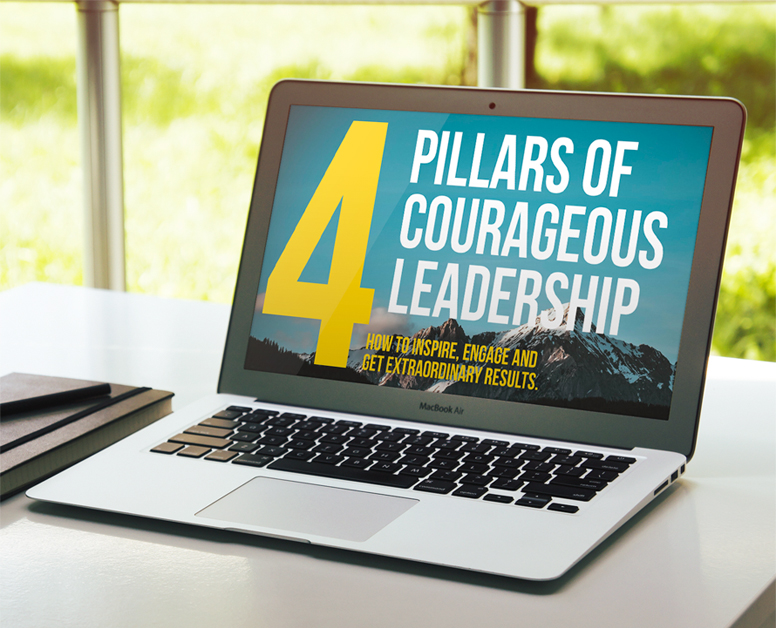 A Summary of The Courage of a Leader® 4 Pillars
A Summary of The Courage of a Leader® 4 Pillars